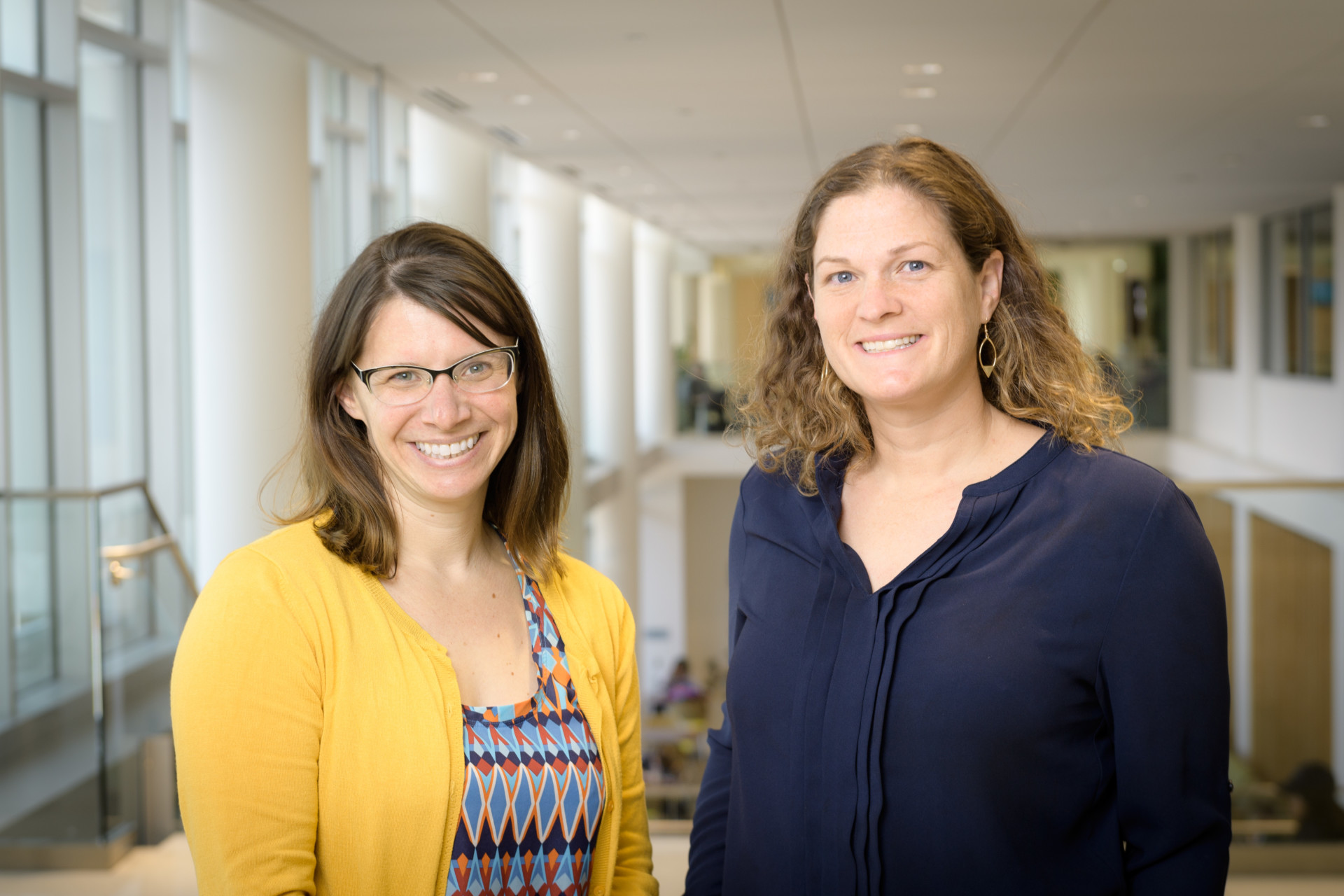
Heather Novak, left, and Jennifer Schneider from the Office of Institutional Research, Planning, & Effectiveness.
Photo by Joe Mendoza, CSU Photography
In 15 minutes, undergraduate students can help Colorado State University better understand the critical factors to their likelihood of success and that of thousands of their Ram peers.
CSU is committed to a continuous assessment and improvement of the undergraduate experience, because research shows a better experience paves the way to graduation. As part of that commitment, every three years we ask first-year and senior students to participate in a brief, confidential, online survey: the National Survey of Student Engagement (NSSE).
How NSSE makes a difference
NSSE helps us to better understand our campus environment and student behavior by asking students about their study habits, educational plans and experiences, how they spend their time, and their satisfaction with the campus, the faculty and the curriculum.
NSSE results serve as an important data source for various levels of accreditation and program review; they are most importantly used to influence university policy and to evaluate student success and engagement. In the past these data have influenced campus conversations about diversity, experiential learning, and the availability of academic resources/support outside of the classroom.
The NSSE survey will be sent to all first-year and senior students on Feb. 12, 2019.
CSU is asking faculty and staff’s help by encouraging students to participate.
A high response rate will provide richer and more reliable data.
What do past results reveal?
The 2016 results of NSSE painted a bright picture of student engagement at Colorado State University.
Highlights include:
- 9 out of 10 students would choose CSU again
- 9 out of 10 students rated CSU highly in terms of their educational experience
- 8 of 10 seniors rated the quality of their faculty interactions as high and discuss their career plans with faculty
- 8 out of 10 seniors plan to do or have done an internship by the time they graduate
These results demonstrate CSU’s commitment to students. Moreover, considering our trends, we’ve sustained quality while continuously improving students’ experiences.
We had a great response in 2016 from students of color, Pell grant eligible students, and first-generation students. That data will help administrators better evaluate how well programs and policies are working that are aimed at addressing the unique challenges these groups traditionally have faced.
CSU does well compared to peer institutions
Compared against peer institutions, CSU’s survey response rate was far higher than the average: 35 percent compared to 15 percent average at peer institutions.
More importantly, CSU’s first-year scores throughout the survey were consistently higher than first-year students in our peer group and CSU’s senior scores were very similar to the scores of seniors in our peer group.
NSSE results also provide rates of participation in high-impact practices, a heavy focus of CSU’s student success initiatives. CSU’s first year students are getting opportunities to participate in high impact experiences at rates higher than peer institutions.
For instance, 62 percent of CSU first-year students have completed a high-impact experience compared to only 55 percent of first-year students at other large land- grant institutions. Eighty-eight percent of CSU seniors complete a high-impact experience, which is similar to the participation rate of seniors in NSSE peer group.
Access to data for faculty and staff
NSSE data are available through the Institutional Research, Planning, & Effectiveness website with interactive reporting; 2019 data will be forthcoming in the Fall. IRP&E staff is available to design specific reports on demographic groups of interest including students of color and first-generation students that can help inform institutional initiatives.
If you’re interested in using NSSE data to evaluate a program or plan new programs and policies, please contact IRP&E.
Heather Novak is assistant director and Jennifer Schneider is research analyst and survey methodologist in the CSU Office of Institutional Research, Planning, & Effectiveness.